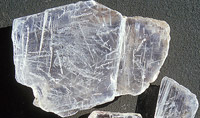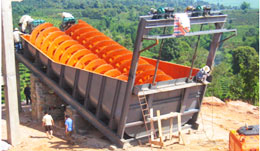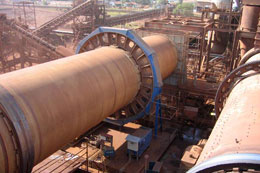-
Sand Making Crusher
- PCL-Vertical Shaft Impact Crusher
- SBM Hydraulic VSI Crusher
- VSI5X Series Impact Crusher
Recycle gypsum processing
Gypsum Waste Management Background

Gypsum is one of the most widely used materials in the building sector and originates both naturally and as a synthetic by-product from a range of industrial processes. Approximately 3 million tonnes of gypsum waste arises only in Europe annually, of which it is estimated that 55,000 tonnes arise in Denmark. This is predominantly plasterboard in the form of offcuts from construction sites and stripped-out plasterboard from demolition and renovation sites.
The recycling unit was specially designed and developed by SBM. It is mobile and can be easily moved from one plasterboard storage warehouse to another, permitting an optimal location of the warehouses and minimising transportation costs. With this approach, one recycling unit can service several warehouses / plants. Dismantling and setting up of the unit can be done in a few hours.

All plasterboard waste can be recycled using the system, including waste plasterboard containing foreign materials such as plastic, wallpaper and metal, e.g. nails and screws. The recycling unit separates foreign material and the facing paper from the plasterboard prior to the gypsum core being granulated and powdered. The treatment facility is capable of handling new construction waste and demolition waste, as well as wet and dry plasterboard waste.
- Limestone Crusher
- Barite Crusher
- Granite Crusher
- Kaolinite Crusher
- Calcite Crushing
- Tombarthite Crusher Mill
- Bentonite Grinding Plant
- Basalt Ore Crusher
- Lignite Crusher Mill
- Silica Ore Crusher
- Tin Ore Mine
- Lead and Zinc Ore Crusher
- Ochre Crusher Mill
- Garnet Crusher
- Mica Crusher
- Asbestos Crusher
- Manganese Ore Crusher
- Talc Crusher Mill
- Feldspar Crusher
- Iron Ores Crusher
- Dolomite Crusher
- Quartz Crusher
- Gypsum Crusher
- Calcium Carbonate Grinding
- Gypsum mineral processing
- Gypsum powder production
- Gypsum mineral beneficiation
- Gypsum mineral quarry
- Recycle gypsum processing
- About Us
- |
- Service
- |
- News & Events
- |
- Contact Us
- |
- Resources
- |
- Showroom
Aggregate Crusher
Artificial Sand Making
Ballast Crushing Machine
Basalt Stone Crusher
Barite Mine Process
Beneficiation Plant
Bentonite Crusher
Bentonite Milling
Calcium Carbonate Crusher
Calcium Carbonate Grinding
Cement Grinding
Concrete Crusher
Coal Crusher
Copper Crusher
Cement Mill
Chrome Mining Process
Copper ore Beneficiation
Coal Processing
Coal Pulvarizer
Feldspar Crushing
Feldspar Grinding
Flotation Machine
Gold Crusher
Gold Mine Equipment
Gold Processing Machinery
Granite Crusher
Granite Crushing Machine
Granite Quarry Equipment
Gypsum Crusher
Gypsum Mining
Gypsum Powder Production
Iron Ore Beneficiation
Iron Ore Crusher
Kaolin Processing Plant
Limestone Crusher
Silica Sand Crusher
Iron Ore Mining Equipment
Cement Production Line
Talc Production Line
Quartz Crushing Machine
Limestone Mining Process
Manganese Benificietion
























